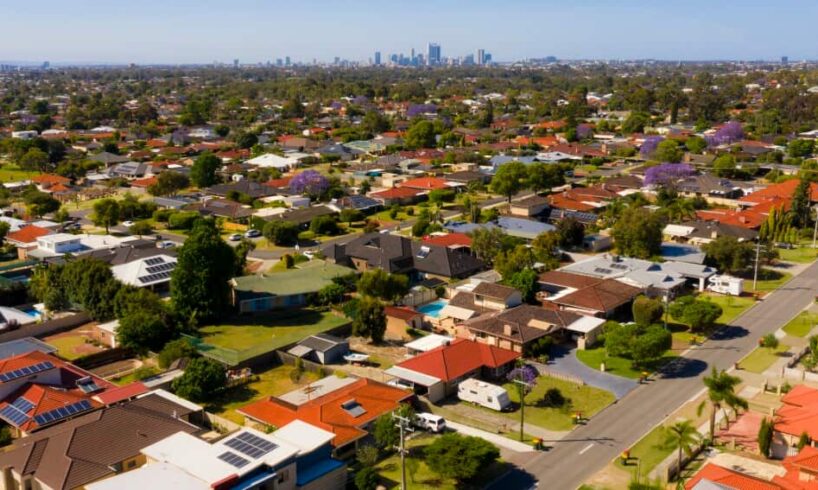
A new national report card has found that two years after the National Cabinet promised a ‘Better Deal for Renters’, most states are still lagging — leaving millions vulnerable to unfair rent hikes, arbitrary evictions and unsafe homes.The report, released by the National Association of Renters’ Organisations (NARO) and National Shelter, examined whether governments have delivered on their 2023 commitment to “harmonise and strengthen” renters’ rights.At the time, leaders pledged to develop a “nationally consistent policy” on reasonable grounds for eviction, limit rent increases to once a year, phase in minimum rental standards and improve protections for tenants.
But the two-year review shows progress has been patchy, with rights still largely dictated by postcode.
Who’s ahead and who’s behind?
Each state and territory was graded on nine reforms, from red (no progress), to orange (progress made, but substantial improvement needed), to blue (exceeding reforms).Victoria came out on top, adopting seven reforms and exceeding expectations on several, including new energy efficiency standards. NSW and the ACT followed closely, with five and six reforms adopted respectively.At the other end of the scale, the Northern Territory recorded no progress in five areas and still allows rent to be increased every six months. Western Australia also trailed, with four areas showing no progress, though three reforms have been adopted. Tasmania, meanwhile, had two areas with no progress and several more still only partly implemented.
South Australia and Queensland sat in the middle, each having adopted or nearly adopted over half of the reforms, but still leaving gaps.
The new report tracks the two-year progress of each state and territory against the ‘Better Deal for Renters’ national strategy. Source: SBS News
Where has progress been made?
Across the country, all jurisdictions have banned solicited rent bidding and introduced some protections for tenants experiencing family or domestic violence.More than half have put limits on lease break fees, and NSW, South Australia and Victoria have made “significant headway” in making rental applications easier and protecting tenants’ personal information.
All jurisdictions except the Northern Territory now limit rent increases to once a year. In the territory, they can still occur every six months.
Where is reform stalling?
But several areas remain unchanged.No-grounds evictions: Only half of the jurisdictions have partially removed them, and they remain legal at the end of fixed-term agreements. WA and NT have made no progress in this area. Rent increases: NT still allows rent increases every six months, while the ACT is the only state or territory to cap the amount rent can be raised.Minimum standards: Only Victoria is on track to exceed national commitments in this area, with new energy efficiency rules introduced and set to be phased out over five years, starting from 2027. Elsewhere, advocates say there has been little progress.
Retaliatory evictions: No state or territory has acted since last year’s report. Only the ACT and Queensland have come close to delivering on reforms.
Privacy: ACT, WA and Tasmania have made no progress on making rental applications easier or protecting renters’ personal information.
Regulation of short-term stays: Only one jurisdiction, Victoria, has taken action to regulate short-term accommodation, introducing a tax on the revenue generated by platforms. While the ACT and Tasmania have also made some headway, there have been no other developments in jurisdictions.
Advocates call for national consistency
John Engeler, CEO of Shelter NSW and spokesperson for National Shelter, said renters shouldn’t face different rights depending on their geographical location.”The rental experience in Australia shouldn’t differ depending on what side of the Murray or Tweed you are renting on,” he said. “The experience of renting should be consistent across all states and territories, especially as Australia’s renting population increases.”Alice Pennycott, principal lawyer for tenancy at Circle Green Community Legal Centre in WA, said the situation there was “especially grim”.
“We continue to fall further behind the rest of the country, and renters are left exposed while the government delays action on the most basic and fundamental reforms,” she said.
Alex Bomford, acting principal solicitor for the Tenants’ Union of Tasmania, said renters in his state had been “left behind, with no significant changes being made to the tenancy legislation in more than a decade”.In the ACT, where progress has been stronger, CEO of ACT Shelter Corinne Dobson warned there was still “no room for complacency”.”The ACT has led the way on many rental reforms, but … renters in the ACT still face serious challenges — from inadequate minimum standards to weak privacy protections — and it’s clear all governments must do more to turn reform commitments into real change on the ground,” she said.Cameron Bloye, acting CEO of Tenants Victoria, said the state’s progress showed what was possible.”Victoria continues to make strong progress against the Better Deal for Renters. “Our experience shows that a fairer housing system is possible.”
Source





